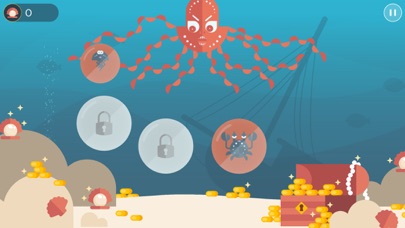
CrushStations is a game designed to train working memory, a subskill of executive functions. Working memory involves holding information in mind and mentally working with it (Diamond, 2013).
Players need to remember the color and type of creatures to free them and keep them out of reach of the hungry octopus.
How does this support learning?
Executive functions refer to a set of top-down, goal-oriented cognitive processes that enable people to control, monitor and plan behaviors and emotions. Miyake and Friedman’s model supports a unity-and-diversity view of EF in that it incorporates the three distinct but related components of EF: inhibitory control, task-switching and updating (Miyake et al., 2000).
What is the research evidence?
Our research suggests that CrushStations is an effective way to train working memory.
The study supporting this claim will be published soon.
Research has found that EF is related to performance in literacy and math along with long-term gains in school performance and academic readiness (Blair & Razza, 2007; Brock, Rimm-Kaufman, Nathanson, & Grimm, 2009; St Clair-Thompson & Gathercole, 2006; Welsh, Nix, Blair, Bierman, & Nelson, 2010) and that disparities in EF among preschool children from low-income versus high-income homes may contribute to the achievement gap (Blair & Razza, 2007; Noble, McCandliss, & Farah, 2007).
This game is part of the Smart Suite, created by New York University’s CREATE lab in collaboration with the University of California, Santa Barbara, and The Graduate Center, CUNY.
The research reported here was supported by the Institute of Education Sciences, U.S. Department of Education, through Grant R305A150417 to the University of California, Santa Barbara. The opinions expressed are those of the authors and do not represent views of the Institute or the U.S. Department of Education.



